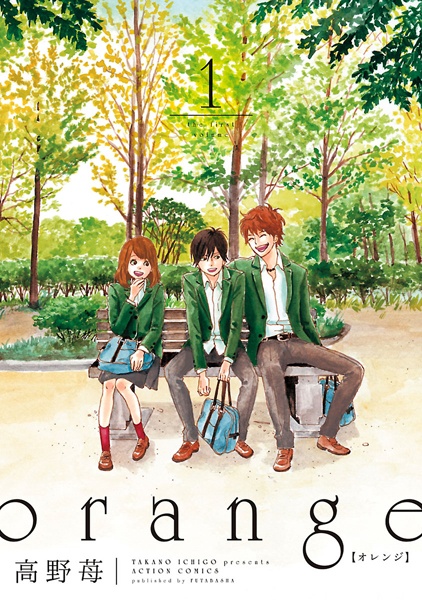Orange and 13 Reasons Why virtually mirror one another
This March, Netflix released new drama series 13 Reasons Why. The show centers around a high-school student named Clay Jensen who finds a box of cassette tapes on his doorstep after school one day. These tapes are from his recently deceased friend, Hannah Baker, explaining the factors influencing her decision to take her own life.
This storyline is similar to that of romance manga (and its anime adaptation) Orange. Released five years after the publication of the 13 Reasons Why novel, it features a girl named Naho who receives letters from her future self. These letters provide guidance which if followed, may save one of her classmates, a boy named Kakeru, from suicide.
The two shows virtually mirror one another despite both being aimed at young adults. In 13 Reasons Why, Hannah is already dead. Her tapes are a way to ensure the people who mistreated her know that they are at least partially responsible. The show emphasizes that there is no way to take back an action you regret, and Clay is left to accept Hannah’s death in his way.
In Orange, however, the future of Kakeru is uncertain and changeable. Initially, Naho doesn’t even know if the letters she receives are genuine. As their predictions start to come true, she is forced to take action to save her friend’s life.
Suicide is never an easy subject for media to address.

13 Reasons Why has received mixed reviews. Critics say that it shows suicide as a viable form of revenge against those who have wronged you, whereas its fans praise it for starting a public conversation about depression and encouraging people to consider the weight of their actions. Unlike Hannah, Kakeru does not have an agenda. He believes that the people around him would be better off without him and actively conceals his suicidal intentions from his friends.
Both shows are true to life. 13 Reasons Why shows Hannah struggling to deal with cyber bullying, rumors of promiscuity, and the objectification of women. These are real issues which affect students around the world. Orange, however, does a better job of portraying the actions of a suicidal person. Kakeru acts relatively normally, and there is little indication that anything is wrong until Naho questions him about his family life. Hannah, on the other hand, repeatedly seeks help and takes her own life when she feels she has exhausted all of her other options.
These shows had vastly different releases. Netflix, an international streaming platform, launched 13 Reasons Why with little prior marketing whereas Orange came out alongside several other high-school romance shows. Despite their differences, both series were well received. The live-action adaptation of Orange was the number one film at the box office in Japan and 13 Reasons Why quickly became one of the most watched shows on Netflix.
Suicide is never an easy subject for media to address. It’s a controversial topic at the best of times, but these two shows illustrate two sides of the same coin. The lasting message of both is that you should treat everyone with compassion because they may have real problems hiding below the surface. They complement each other very well. 13 Reasons Why says that you can’t change the past, but Orange asks “If you could, would you?”.